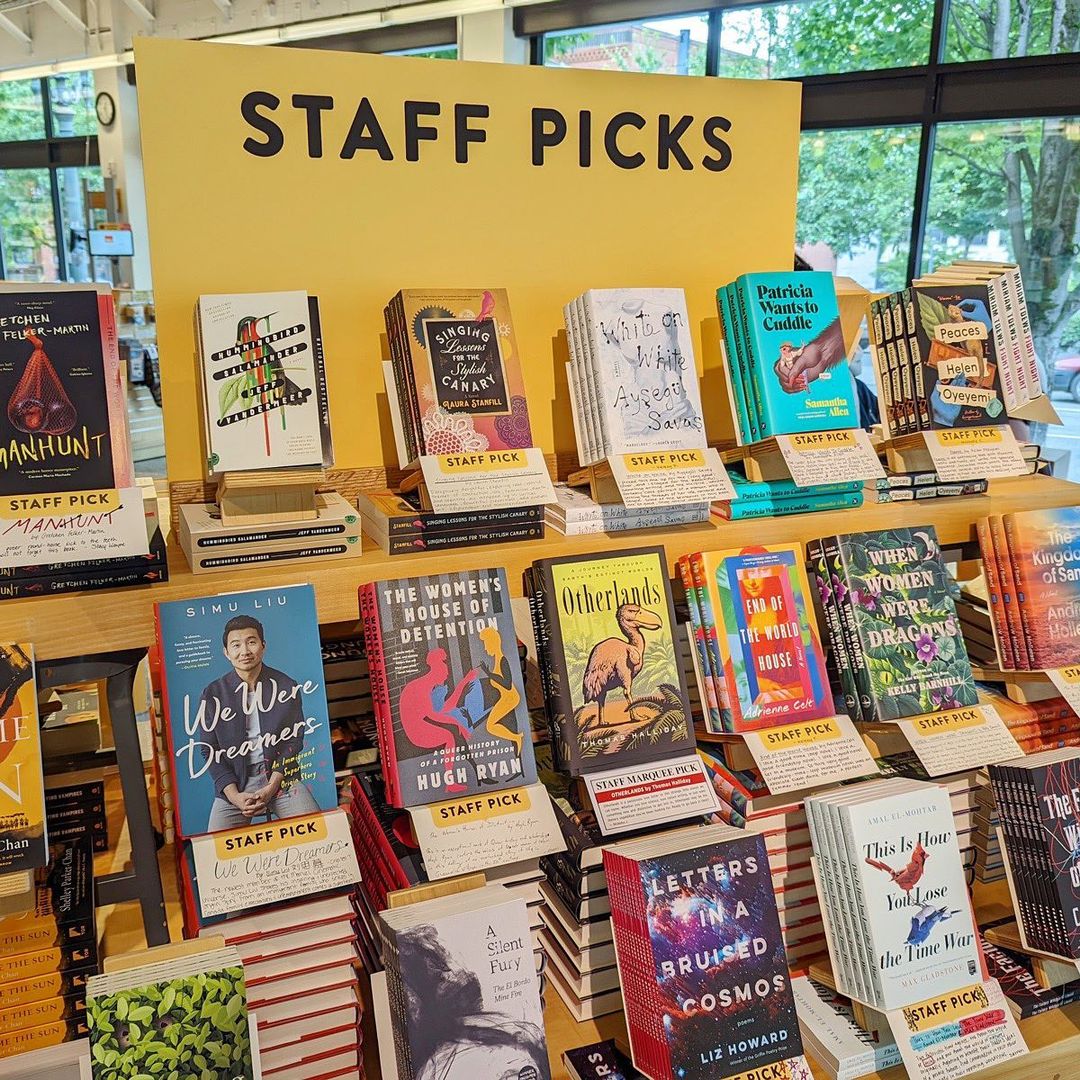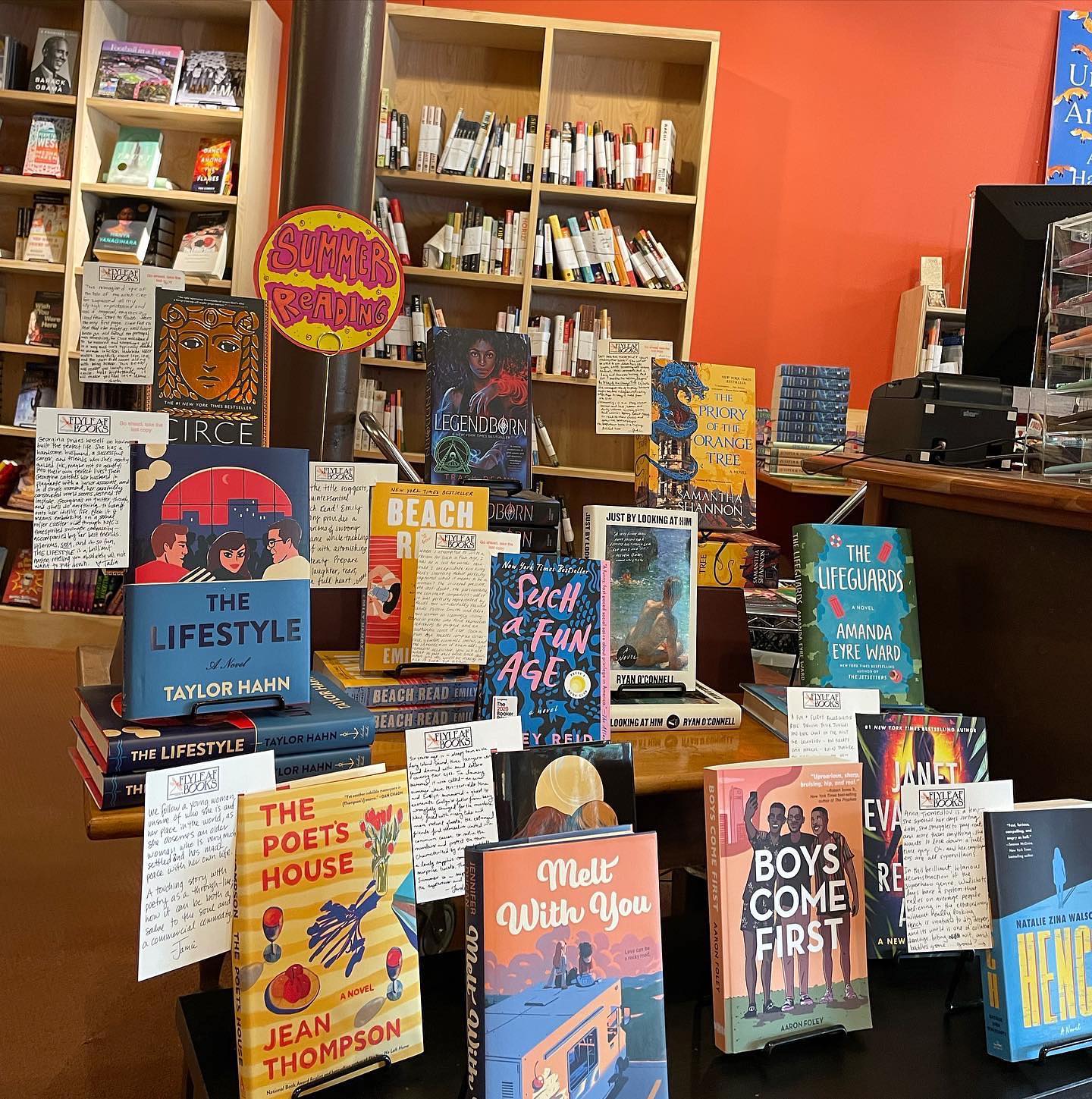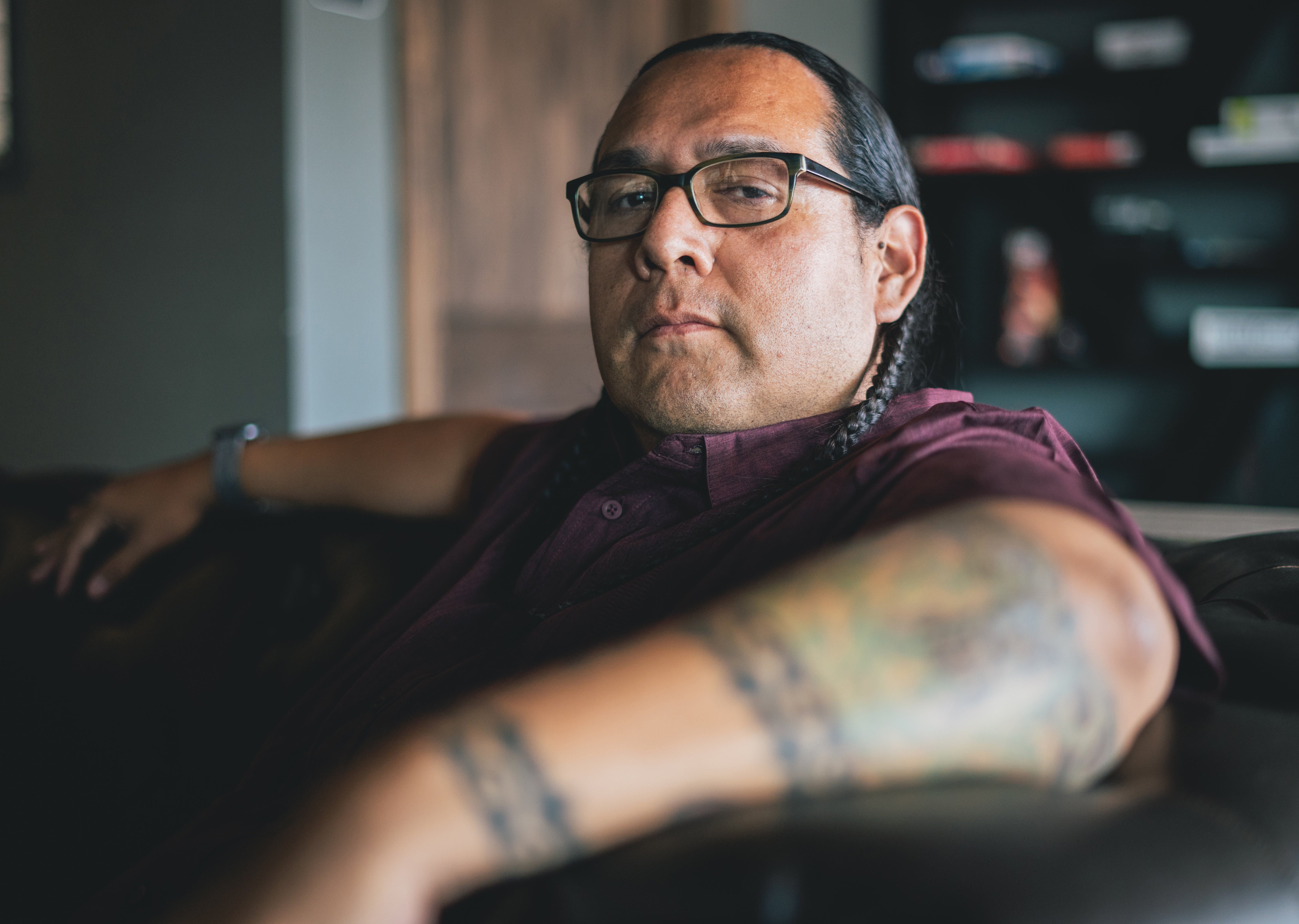 |
| photo: Dalton Perse |
Oscar Hokeah is a citizen of Cherokee Nation and the Kiowa Tribe of Oklahoma from his mother's side and has Mexican heritage through his father. He holds an MA in English with a concentration in Native American Literature from the University of Oklahoma as well as a BFA in Creative Writing from the Institute of American Indian Arts (IAIA), with a minor in Indigenous Liberal Studies. He is a recipient of the Truman Capote Scholarship Award through IAIA and is also a winner of the Native Writer Award through the Taos Summer Writers Conference. He works with Indian Child Welfare in Tahlequah, Okla. Calling for a Blanket Dance (Algonquin Books) is his debut, a multigenerational and deeply personal novel.
Handsell readers your book in 25 words or less:
Calling for a Blanket Dance follows a young man, Ever Geimausaddle, contending with the push and pull of Kiowa/Cherokee/Mexican identities, while transforming perceptions of manhood.
On your nightstand now:
I'm reading Velorio, the amazing debut novel by Xavier Navarro Aquino. I'm finding it to be a great depiction of the human condition, and it's giving me a new look at Puerto Rico. I might be drawn to the structure because it's also polyvocal and divides each chapter by characters--very similar to my own novel. I've always enjoyed polyvocal novels. I also respect Aquino's boldness in depicting scenes with brutal honesty.
Favorite book when you were a child:
I was a big fan of Dr. Seuss, my favorite of those books being Oh, the Thinks You Can Think! I'm drawn to the surrealism. I like odd and unique books. I think I've always been interested in the peculiar.
Your top five authors:
N. Scott Momaday, who taught me how to capture an entire era in one character and how to champion for the struggles and hardships of Indigenous peoples. Alice Munro, who taught me how to write genuine voice from the depths of a specific community. After reading her stories, I was able to look at my Kiowa and Cherokee communities with a lens for literature. Gabriel García Márquez, who taught me how to show readers an entire world in the breadth of a single sentence. His vivid diction gave me insight into how to capture taut vernacular from my tribal communities. Robert J. Conley, who taught me how to be aware that my ancestors are reading every word I write and to show my respect to a history of violence with beauty, grit and grace. Joy Harjo, who taught me how to broaden my Indigenous lens to include all Indigenous people of North and South America. She showed me how to write the way I dance, like I'm moving to the same rhythm and song as everyone in my communities.
Book you've faked reading:
There were a few in grad school (I hate to say), but it wasn't so much the content as it was the time. But there was one book--The Golden Bowl by Henry James--that was difficult for me to get through. It was written in such a way that it was really hard for me to find the rhythm, so it was hard for me to find a way into the book. It seemed a little erratic in sentence structure.
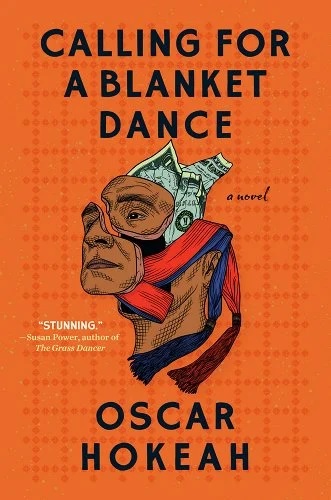 Book you're an evangelist for:
Book you're an evangelist for:
Right now I'm all about The Other Black Girl by Zakiya Dalila Harris. It's one of those books that gave me a great sense of validation. I think as people of color we run into these situations, and often our perspective is dismissed and overlooked. Also, the book was able to dazzle me. Meaning, I thought I had it figured out, but I didn't. And when I realized what it was, I was shocked that I didn't figure it out. Very savvy, Ms. Harris. She's a great writer, and I hope to see more books with the same theme in the future.
Book you've bought for the cover:
Many of Stephen King's books I bought for the cover. But I remember The Stand being oddly alluring to me. It was a simple design, nothing extravagant, but it lured me in. It was my first Stephen King book, and it was the uncut version. It turned out to be a hefty introduction to King's books. But I also was lured in by many fantasy books for the same reason, like the Forgotten Realms series. There was an offer of escape in those images.
Book you hid from your parents:
I was raised by a single mother who was too busy paying the bills to monitor my reading tastes. But I remember being reluctant to ask for Clive Barker books. She never asked about the contents. I just told her they were like Stephen King books. As we all know, Barker's writing is a little more sinister and grotesque. But when I was a teen, I was big into horror books and movies.
Book that changed your life:
I'm going to have to give it to Stephen King's The Stand. Largely because his writing inspired me to want to become a writer. I think there was a sense of empowerment, like I had just discovered my own agency and could write the worlds I wanted to explore. I wrote these odd Indigenous/horror/fantasy blend stories. They were Native characters who lived in magical worlds that I could create myself. So I'm going to have to give it to The Stand.
Favorite line from a book:
"They have assumed the names and gestures of their enemies, but have held on to their own, secret souls; and in this there is a resistance and an overcoming, a long outwaiting." --N. Scott Momaday, House Made of Dawn
Five books you'll never part with:
Too Much Happiness by Alice Munro, House Made of Dawn by N. Scott Momaday, One Hundred Years of Solitude by Gabriel García Márquez, Mountain Windsong by Robert J. Conley and The Way to Rainy Mountain by N. Scott Momaday.
Book you most want to read again for the first time:
It's a story called "Child's Play" in Too Much Happiness by Alice Munro. There is something deeply innocent and disturbing about the main character. Munro is known for being able to capture this underlying psychology of her characters. It shocked me the first time I read it. And I was immediately impressed at Munro's ability to capture all sides of human nature in such a sadistic character. I was amazed at her craft and hoped to be able to execute writing with the same depth.
 In the second quarter ended June 30, net sales at Amazon rose 7%, to $121.2 billion, and the net loss was $2 billion compared to net income of $7.8 billion in the same period a year earlier. The sales gain was well below the company's traditional gains in the 20% range, and the net loss marked the second quarter in a row Amazon has had a net loss. The first-quarter net loss was Amazon's first quarterly loss in seven years.
In the second quarter ended June 30, net sales at Amazon rose 7%, to $121.2 billion, and the net loss was $2 billion compared to net income of $7.8 billion in the same period a year earlier. The sales gain was well below the company's traditional gains in the 20% range, and the net loss marked the second quarter in a row Amazon has had a net loss. The first-quarter net loss was Amazon's first quarterly loss in seven years.









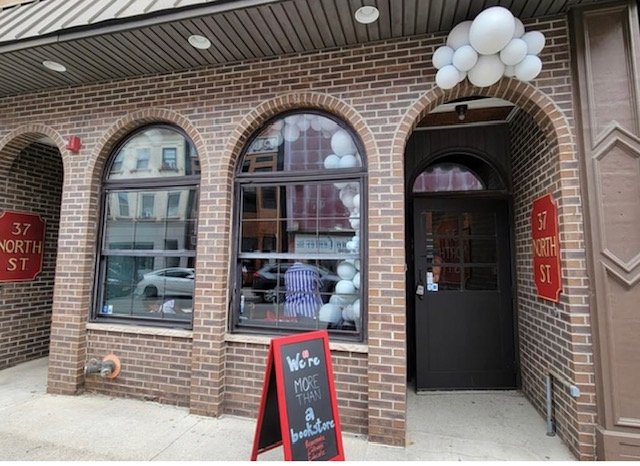
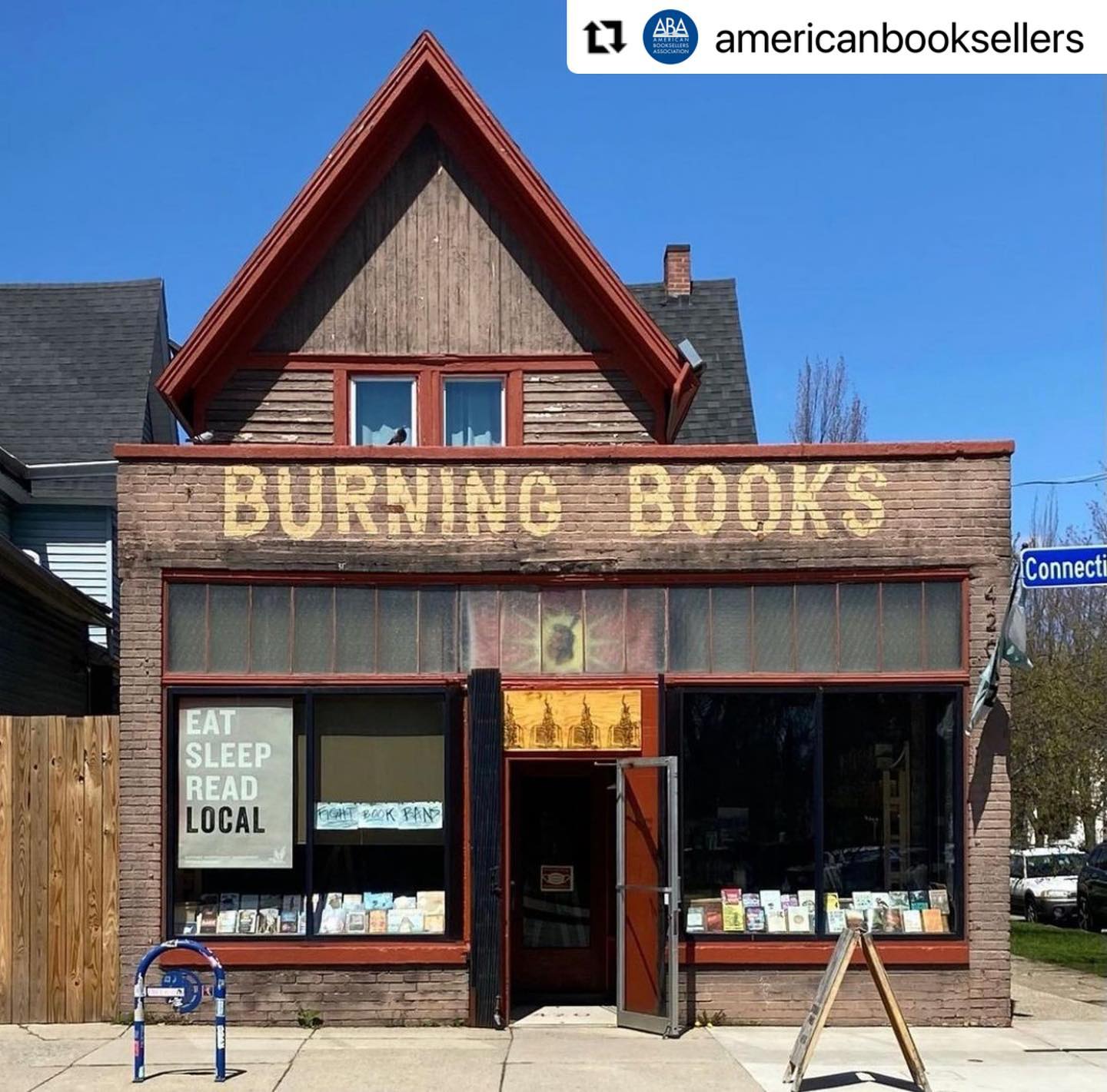
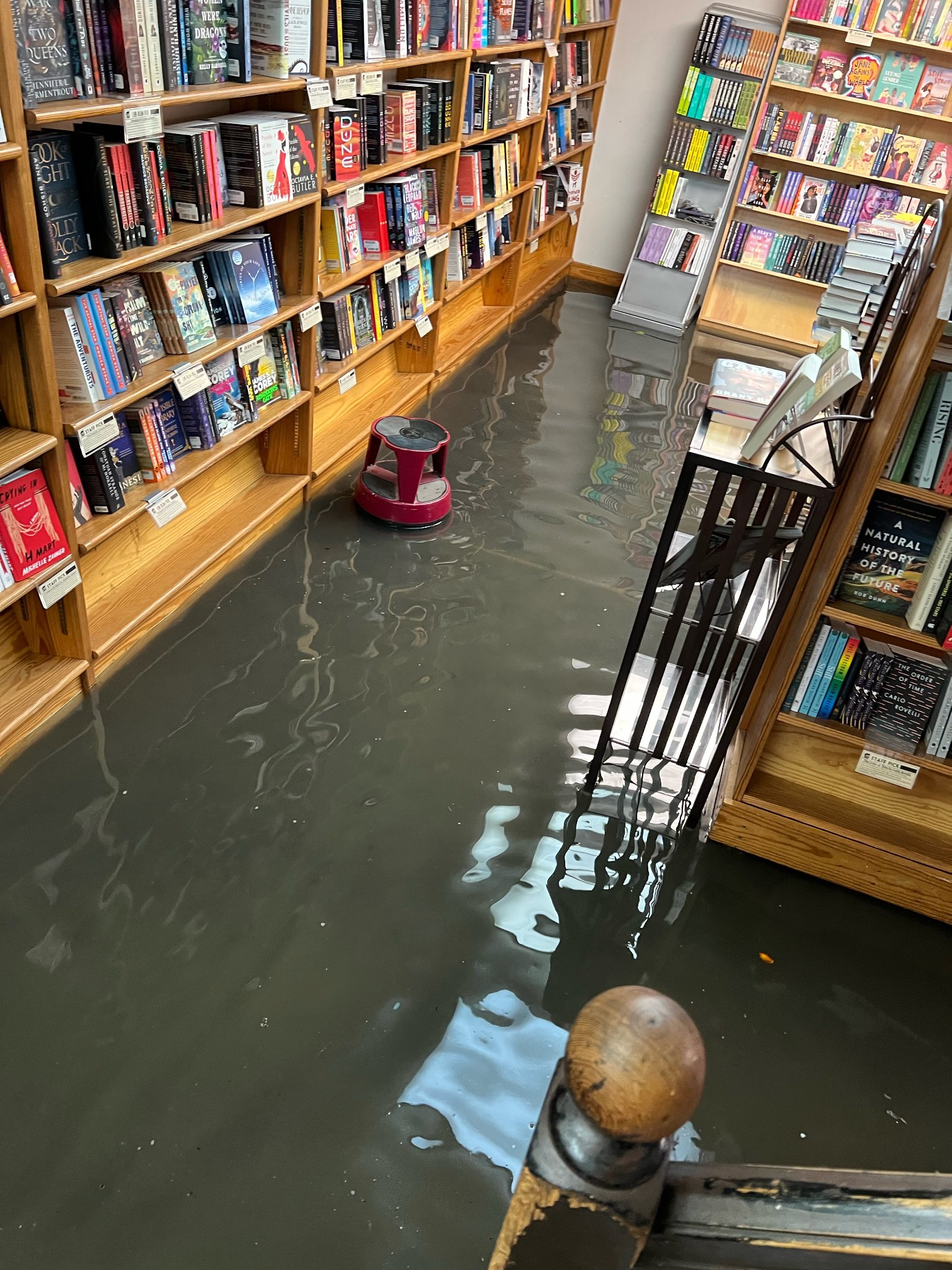

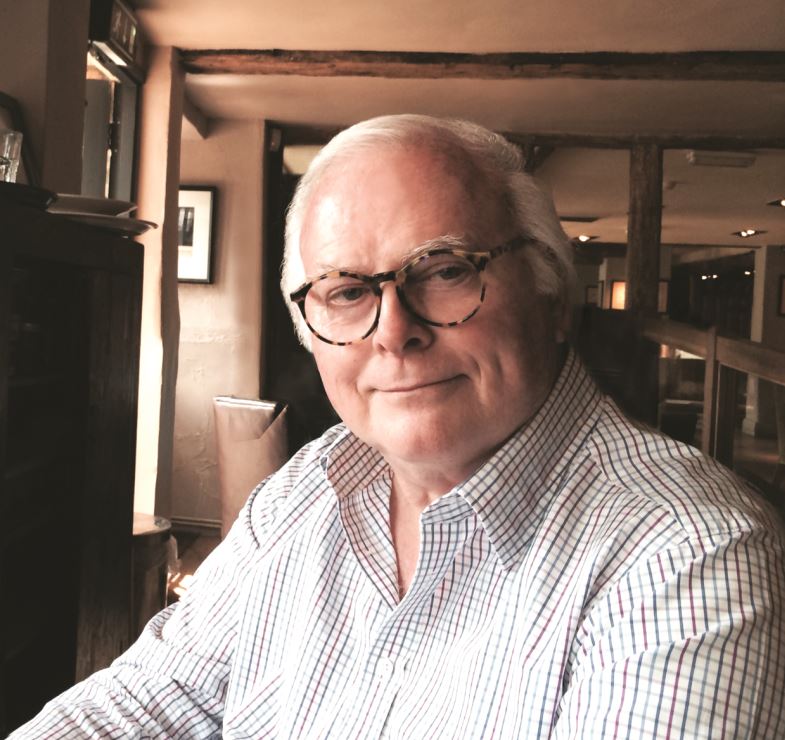
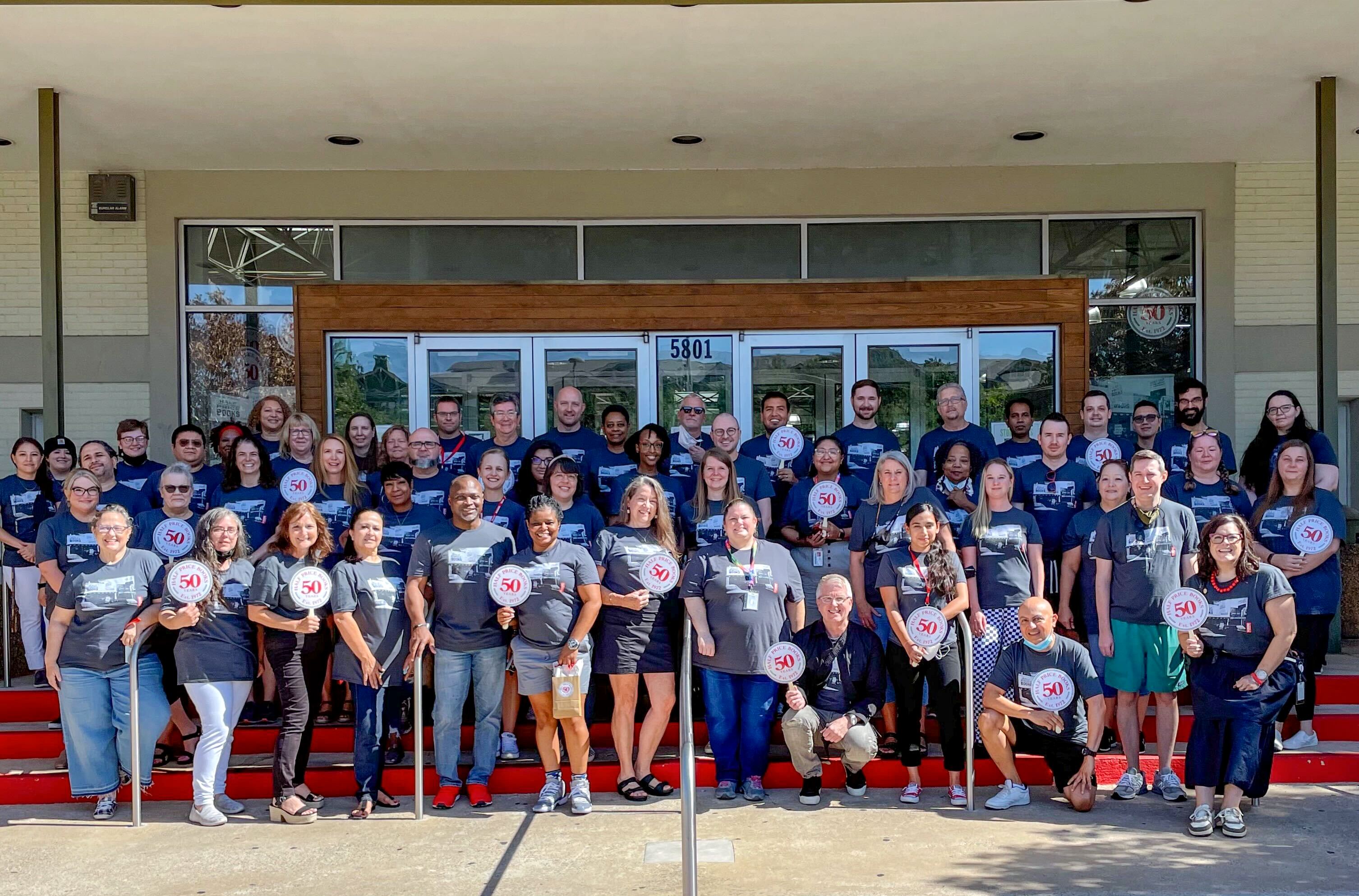 On July 27, 1972, Pat Anderson and Ken Gjemre opened the first
On July 27, 1972, Pat Anderson and Ken Gjemre opened the first  Posted by the
Posted by the  "
"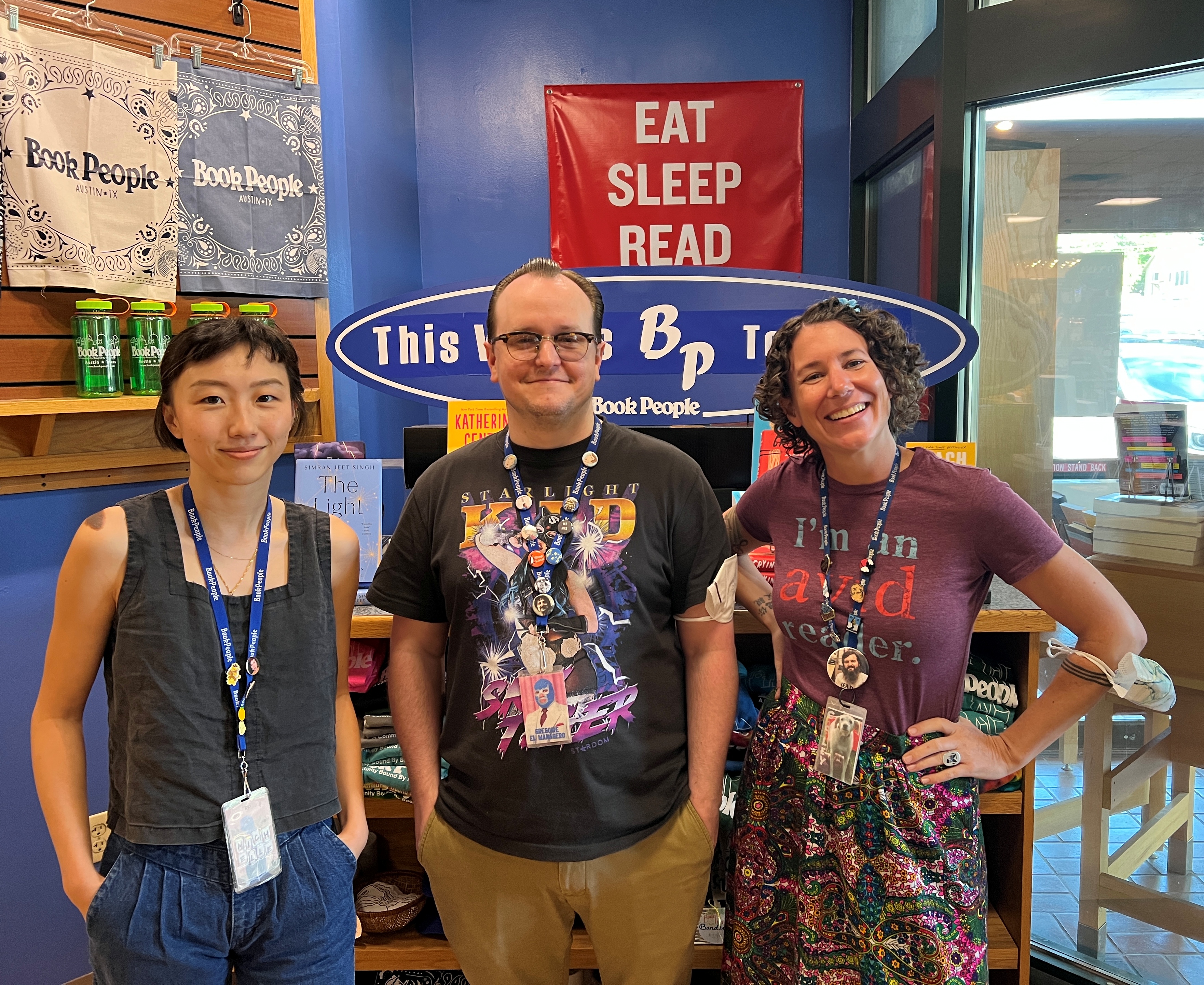
 The Curious League of Detectives and Thieves 1: Egypt's Fire
The Curious League of Detectives and Thieves 1: Egypt's Fire
 Book you're an evangelist for:
Book you're an evangelist for: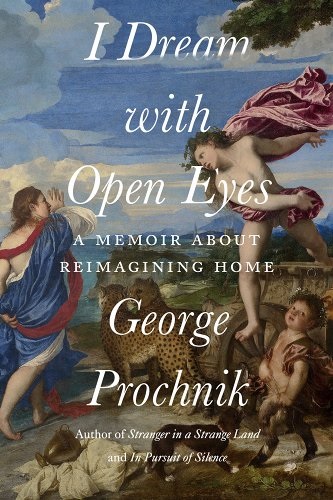 George Prochnik's I Dream with Open Eyes: A Memoir About Reimagining Home, is a bookend to
George Prochnik's I Dream with Open Eyes: A Memoir About Reimagining Home, is a bookend to 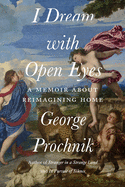
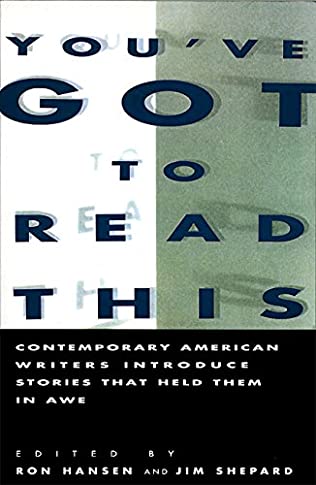 This anthology was published in 1994. I read and started handselling it immediately. I'd been told many times that short story collections were less than irresistible to bookshop customers (mostly by the customers themselves), but we sold the hell out of You've Got to Read This, a title that also happens to be the handseller's battle cry.
This anthology was published in 1994. I read and started handselling it immediately. I'd been told many times that short story collections were less than irresistible to bookshop customers (mostly by the customers themselves), but we sold the hell out of You've Got to Read This, a title that also happens to be the handseller's battle cry.  "We updated our
"We updated our 